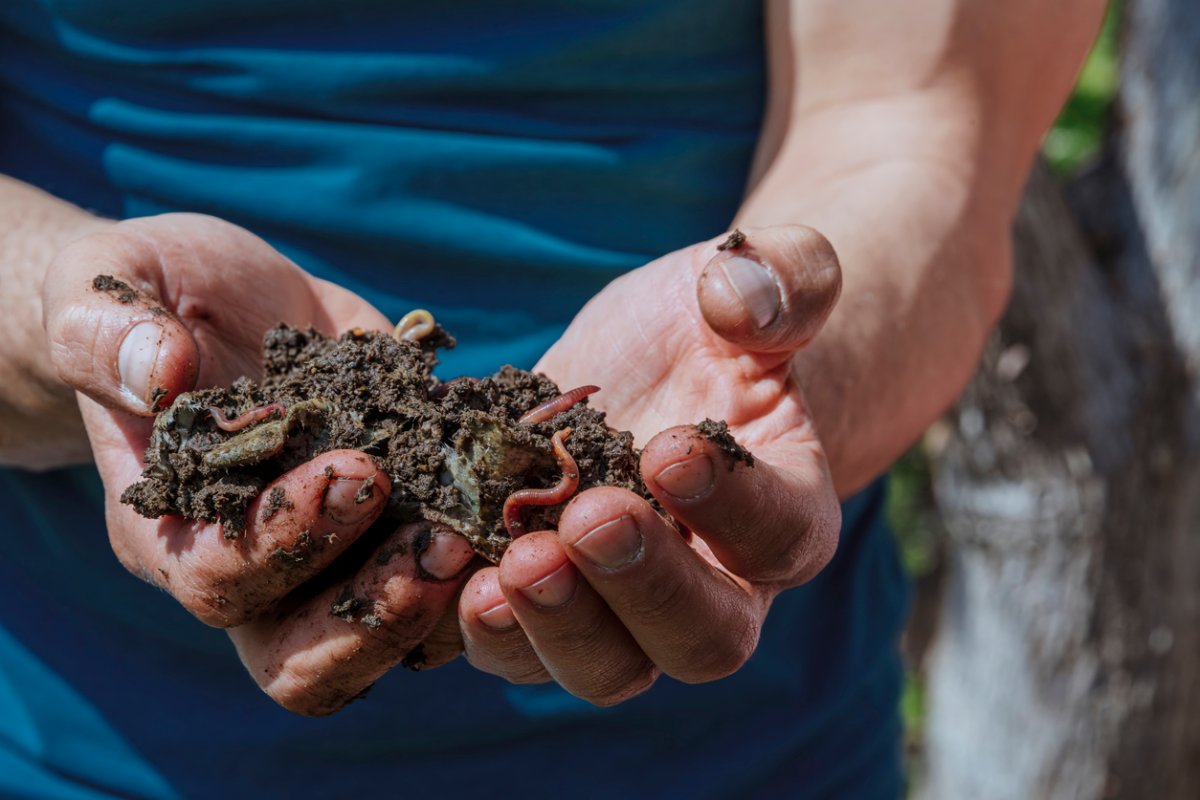

We may earn revenue from the products available on this page and participate in affiliate programs. Learn More ›
Gardeners are thrilled to discover worms when they work the soil in their planting beds because of the critical role these slimy little friends play in producing rich, healthy soil that’s necessary for growing vigorous plants. There are many earthworm benefits, but different worm species work better in different environments.
Earthworms—with reddish, segmented bodies—burrow into the ground and appear naturally in moist, open garden beds. Red wigglers—smaller worms with purplish-red bodies—do better in compost bins because they can’t burrow as deep as earthworms. Here are some of the many reasons to welcome earthworms to your garden.
RELATED: Why Every Gardener Needs a Worm Bin
1. Humus
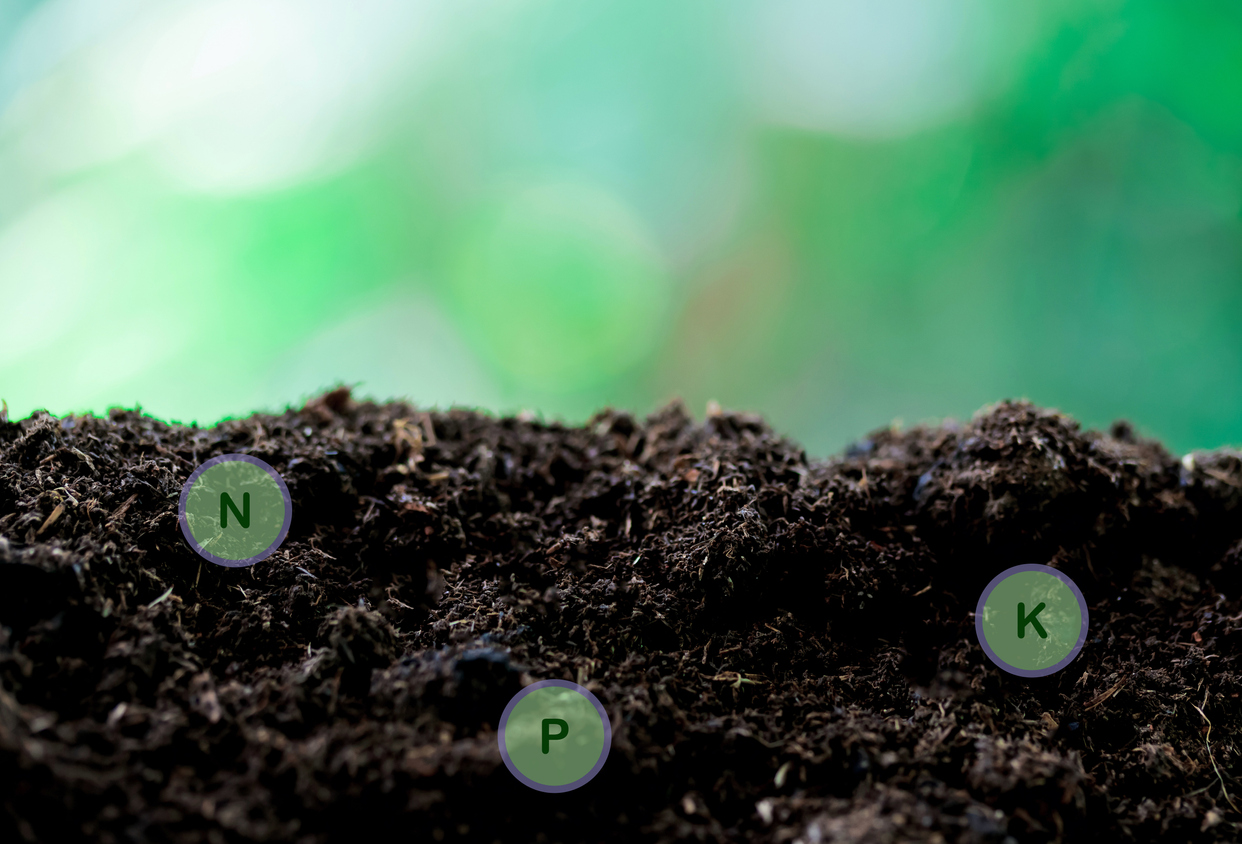
The Earth’s crust contains 4 to 12 inches of life-sustaining humus, the residue of decomposing plant and animal matter that remains after organic matter from animal and plants decays until it contains basic chemical elements. The same process works in garden beds and compost piles. Acting as a sponge for moisture, minerals, and nutrients, humus slowly releases nitrogen, phosphorus, sulfur, calcium, potassium, magnesium, and other critical ingredients to plants. It also improves soil structure, creating a loose texture that supports aeration and drainage.
Earthworms (along with bacteria, fungi, and microorganisms) play a central role in decomposing plant and animal matter to create this important brown-black material.
2. Worm Castings
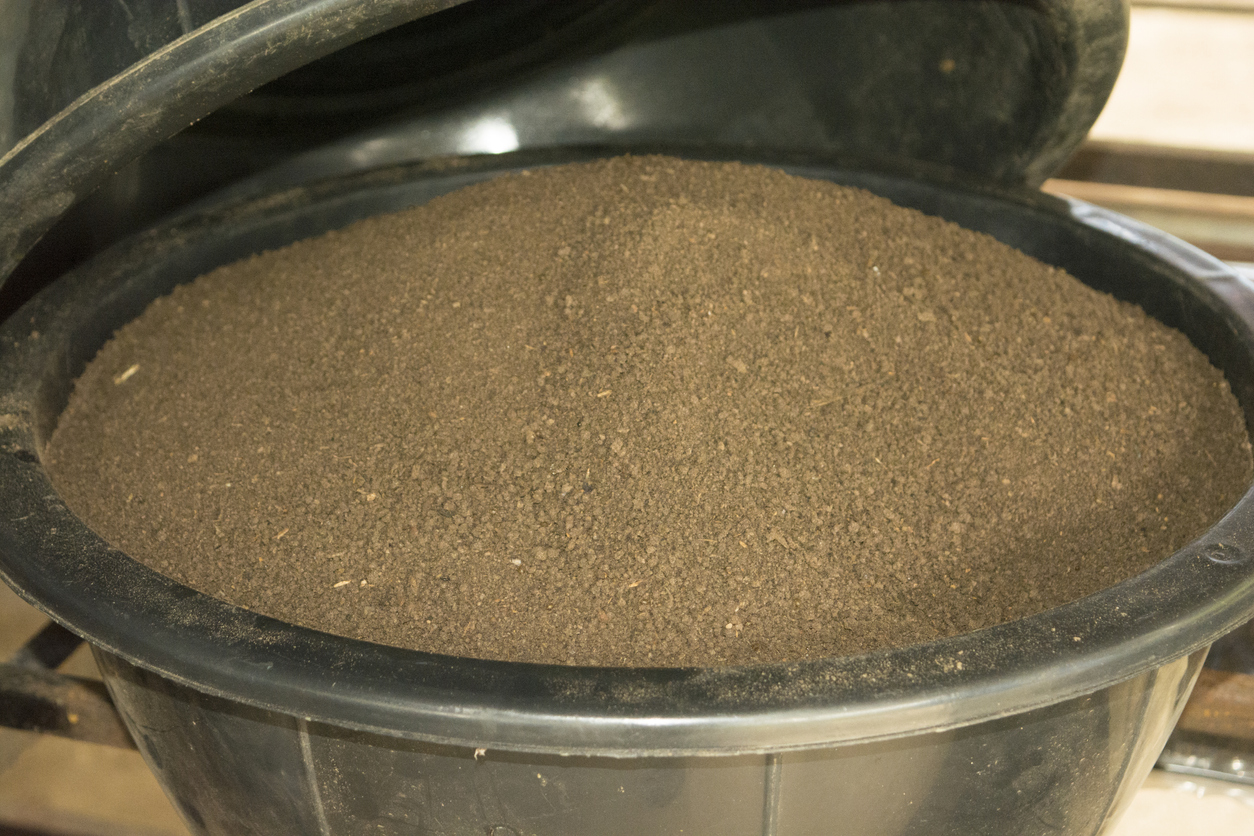
Considered “gardeners’ gold,” worm castings are manure—organic worm waste, also called vermicast. Used as a soil amendment, castings add nitrogen, phosphates, and potassium to the soil; these nutrients are necessary for plant growth. They also help aerate the soil, improve its structure, and make it more absorbent, preventing it from drying out.
Worm castings also add beneficial bacteria and microorganisms that help create healthy soil. They can even extract toxins from the soil. In addition, worm castings repel spider mites and aphids. If you’re vermicomposting, you can harvest worm castings every 1 to 2 months.
RELATED: What Is Leaf Mold and How to Use It in Your Home Landscape
3. Soil Aeration
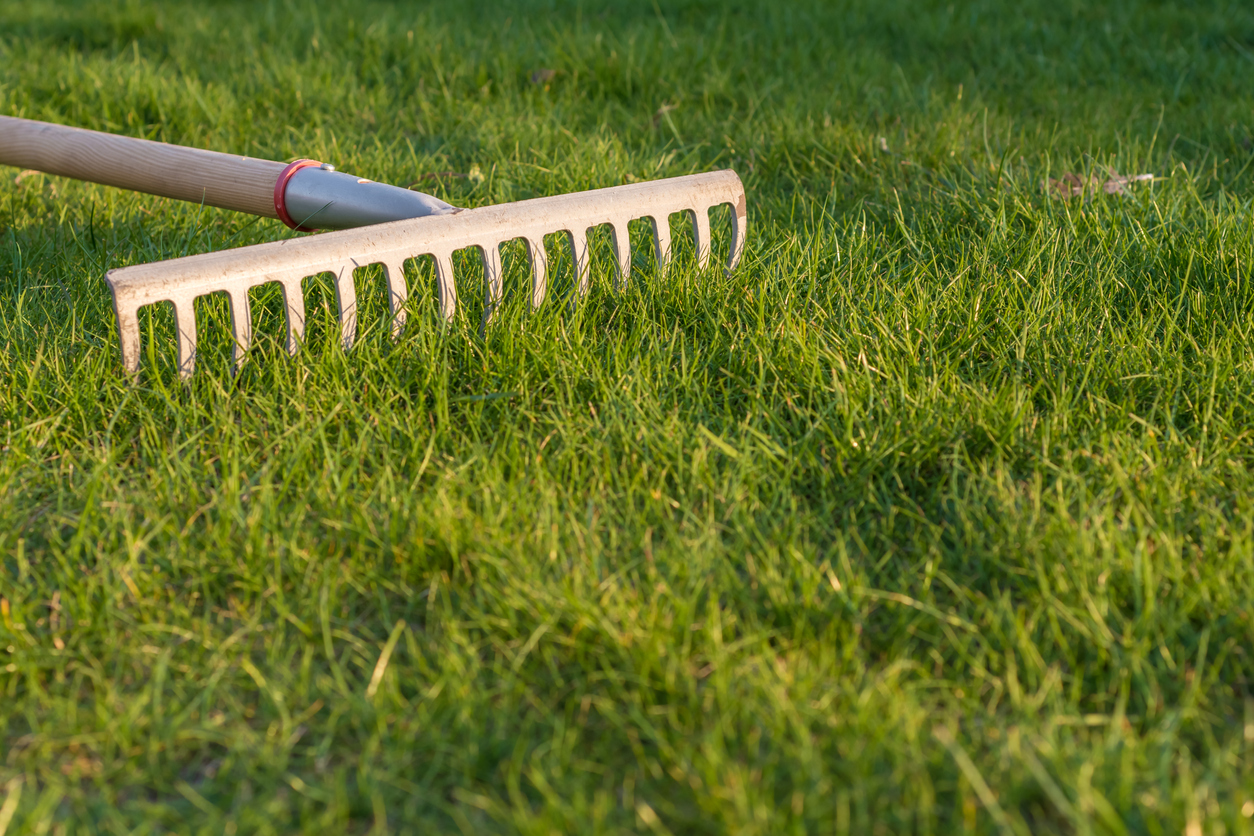
Another of the earthworm benefits is soil aeration. The worms burrow into the soil, developing a network of tunnels as they eat organic matter along the way. These tunnels loosen the soil, which allows air to reach plant roots so they don’t become waterlogged. They permit rain and irrigation water, as well as beneficial bacteria, to better permeate the soil and reach the roots. Earthworms will be active when the soil is around 70 degrees Fahrenheit and moist. Extreme heat, cold, or moisture will slow activity.
4. Hardpan Breakdown
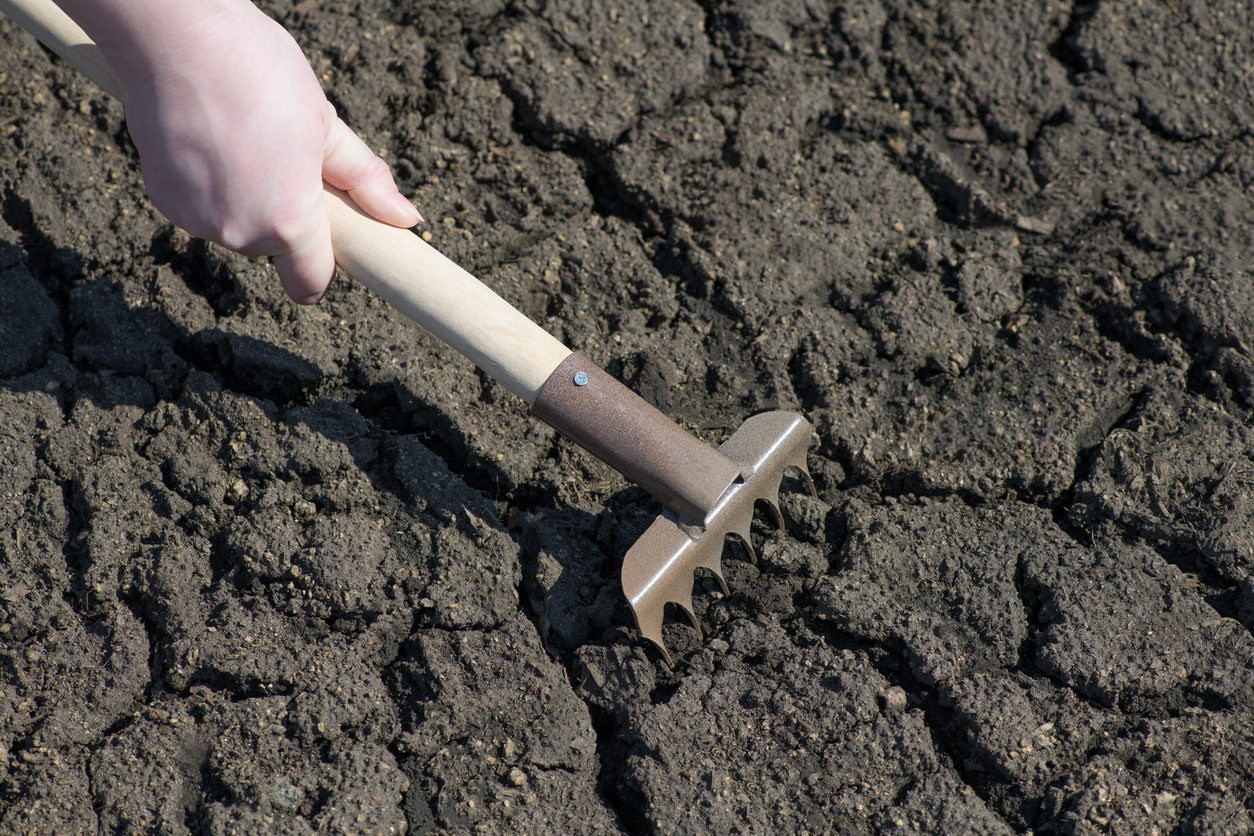
As earthworms tunnel through garden soil, they can break up thin layers of hardpan. Hardpan is a layer of compacted, dense soil (often clay) impermeable by air, water, and plant roots. Its depth ranges from a few inches to a few feet below the layer of topsoil, and can be a few inches to a few feet deep. Whether this rock-hard soil occurs naturally due to its chemical makeup or as a result of pressure from repeated heavy equipment traffic, it can result in poor plant growth.
Earthworms can burrow as far down as 6 feet, and can keep soil loosened, improving soil’s aeration, porosity, and permeability, plus break up those thin layers of hardpan.
5. Litter Removal
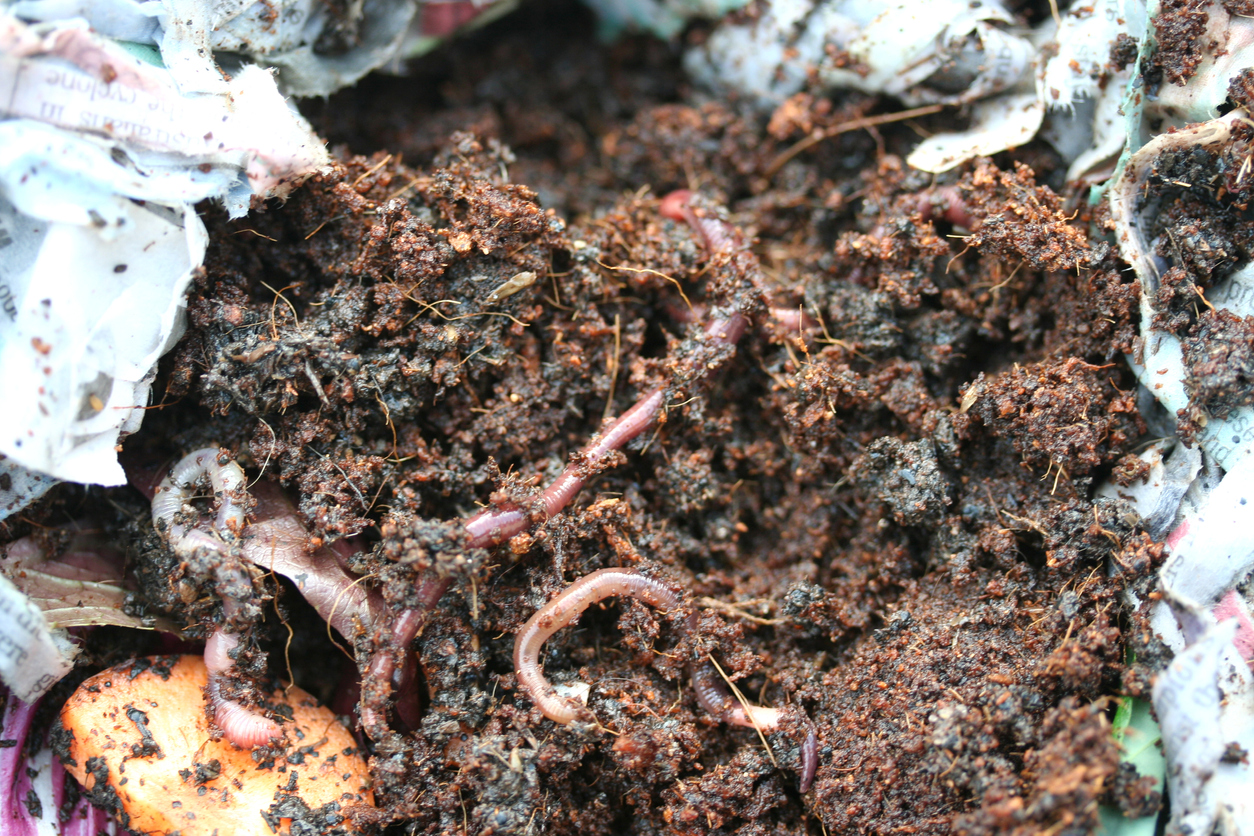
Earthworms are detritivores: they eat decaying plant and animal material—as well as fungi, algae, manure, and even soil that contains organic matter. Worms also consume kitchen scraps, from fruits and veggies to eggshells and coffee grounds. This invertebrate’s role is to eliminate dead and decaying organic matter, which helps control pests and diseases.
Masters at cleaning up organic litter on the soil surface, earthworms have bacteria and microbes in their guts that can destroy harmful chemicals. Red wigglers live in the surface soil layer, feeding on decaying litter. As they multiply and venture to new areas, they distribute the nutrients they consume.
6. Soil Fertility Improvement
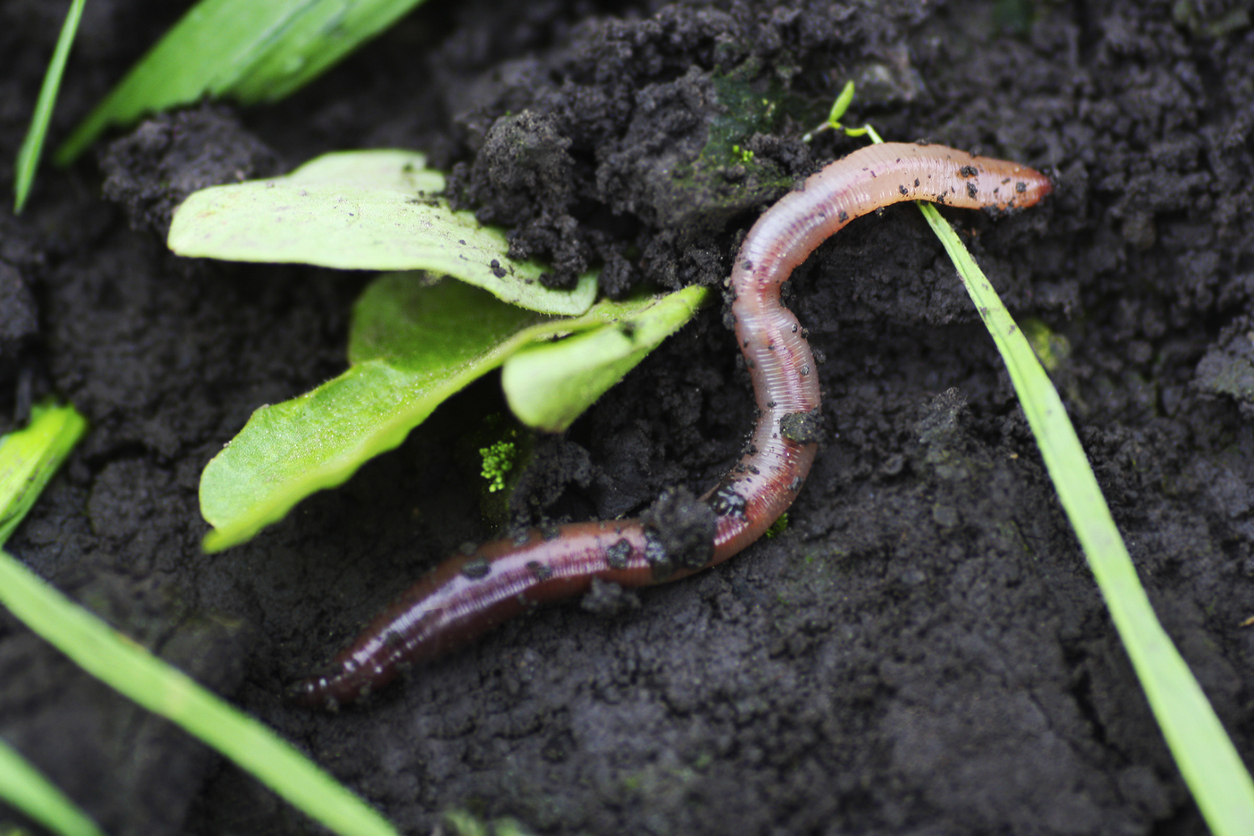
Earthworms bring minerals from deep below the soil subsurface to replenish surface layers, which counteracts the effects of leaching and improves the soil’s fertility. Worm castings typically contain three times more calcium, four times more phosphorus, and several times more nitrogen and potassium than the surrounding soil.
While their castings contain essential nutrients for plant health, worms also chelate nutrients to convert minerals to a form that plants can use. Worms increase microbial activity in soil because their digestive process creates an environment suitable for beneficial bacteria and fungi, which break down organic matter and release nutrients into the soil.
RELATED: What Is the No-Dig Gardening Method, and Why You Should Try it This Spring
7. Reduced Erosion

By tunneling through soil, earthworms form channels that enable plant roots to grow deeper, stabilizing soil and preventing it from being washed away. These channels increase water absorption as much as 35 times. Some studies indicate that in addition to increasing infiltration rates, earthworms cut runoff in half by loosening the soil to facilitate absorption and water-holding capability. The soil’s enhanced drainage fights erosion.
Earthworms reduce the need for tillage, or cultivating, the soil—an action that can be destruction and contributes to erosion—by tunneling, which aerates and loosens the soil. Their castings contain chemicals that form aggregates in the soil to resist erosion.
RELATED: 9 Mistakes You’re Making That Are Damaging Your Soil
How to Attract Earthworms
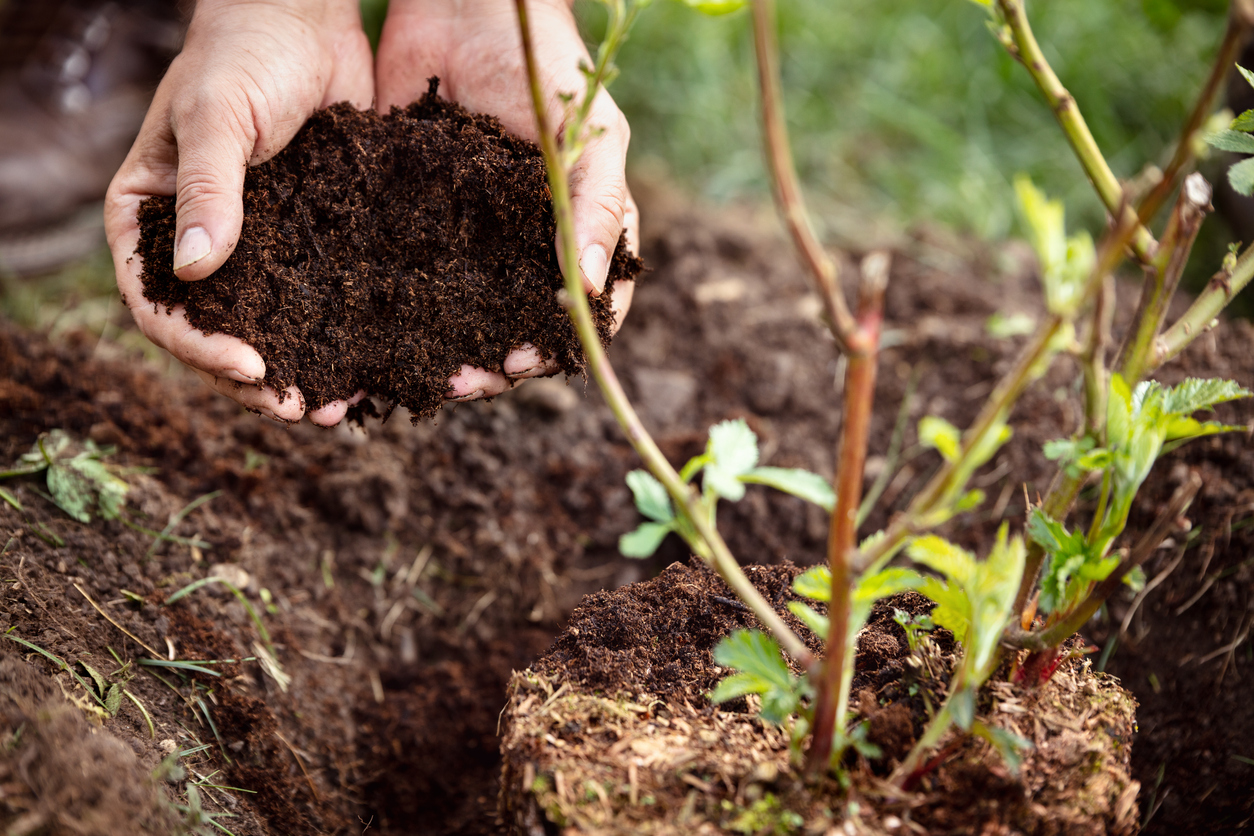
Now that you know how valuable earthworms are, you’ll want to know what to do to attract them to your garden and what not to do so they’ll stick around.
- Skip synthetic chemical fertilizers, fungicides, and pesticides: They can decrease populations and have a harmful effect on earthworms.
- Add mulch composed of grass clippings and leaves: These materials attract more earthworms than coarse mulches from straw or corn stalks.
- Add mulch made of wood fines: Smaller particles are easier for worms to digest and have more microbial activity, which attracts worms.
- Add compost: Compost mulch provides both food and shelter for earthworms.
- Avoid deep tilling: This can damage earthworm burrows.
- Keep soil moist: Earthworms need moisture to live. Keep soil moist by providing ground cover or humus.
- Improve drainage: Waterlogged soil is inhospitable. Aerate and drain soil as necessary.
- Keep soil pH above 4.5: Earthworms don’t like acidic soil. Adding lime increases the pH to an acceptable level and adds much-needed calcium.
- Purchase worms: For indoor vermicomposting, you’ll have to introduce worms to the compost bin.
